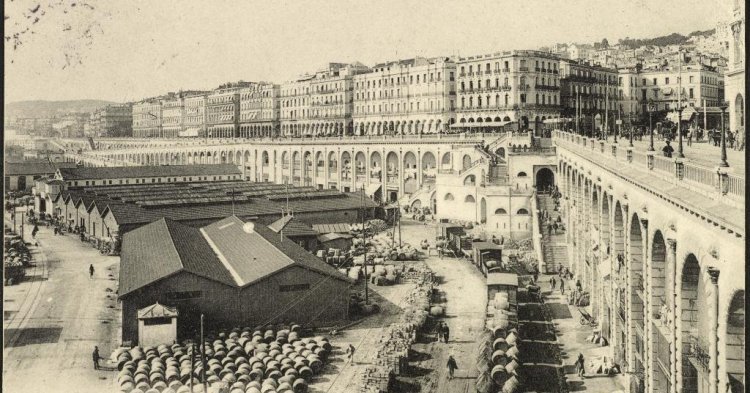Starting with the toppling of the statue of Edward Colston, a 17th-century slave trader, in Bristol in the UK, several European nations have taken down statues of similar figures and have made decisions to make amends for the crimes of colonialism.
France took the historic decision to return the remains of two dozen Algerian freedom fighters to Algeria in early July. Franco-Algerian relations have a colonial aspect that is not commonly emphasised, but is important nonetheless. These fighters, decapitated for resisting French colonial forces in the 19th century, were then buried in a symbolic ceremony in Algeria marking the country’s 58th anniversary of independence.
French colonial rule over Algeria spanned 132 years, beginning in 1830 with the invasion of Algiers and lasting until the Algerian War of Independence which concluded in 1962. Whilst the nature of French rule changed over this time, Algeria was administered as an integral part of France from 1848 until independence.
Discontent among Algerians grew after the World Wars in which Algerians sustained numerous casualties. They became disillusioned with French rule and their lack of political and economic status in the colonial system. What started as a clamour for greater autonomy later erupted into an all-out war for independence.
The Algerian War was fought between France and the Algerian National Liberation Front for over 7 years, leading to Algeria winning its independence from France. The long, complex conflict was characterised by guerrilla warfare, maquis fighting and the use of torture, leading to over 250,000 Algerian casualties and the collapse of the Fourth Republic in France.
The Evian Accords were signed on March 18th, 1962 which ushered in a newly independent Algeria, thus ending the Algerian War. But what now? Where do Franco-Algerian relations stand currently?
Since independence, Franco-Algerian diplomatic relations have taken the same pattern. Algeria will insist that France must apologise for France’s crimes committed during the 132 years of harsh colonisation and France fails to do so.
However, the French decision to return the remnants seems to be meaningful to the Algerian people and critical to mending the relationship. Nourredine Bessadi, a researcher and freelance consultant who focuses on Algeria, emphasises the role of the Algerian people in bringing this about through social media campaigns and petitions.
In terms of mending the relationship further, Bessadi stresses the need to open up and make public the archives which chronicled the 132 years of French colonial rule of Algeria. In addition, he thinks France must make a formal apology to Algeria since no such statement has been made previously.
What does this mean for the rest of the continent? Are we now approaching an age in which it is necessary for colonial powers to acknowledge the past? From wars and unrest in Syria, Yemen and Iraq, to the Israel-Palestine conflict; practically the entirety of the problems that plague the Middle East and former colonies can be traced back to decisions made by colonial powers.
A first step needs to be acknowledging and making a significant effort to remember the past. There is also substantial pressure to decolonise the curriculum, take down monuments that commemorate racist historical figures and take action against systemic racism that put ethnic minorities at a disadvantage socially and economically.
What will materialise from these recent developments is yet to be seen, but understanding how change can be made may help us capitalise on recent momentum.
As Martin Luther King said, ‘Injustice anywhere is a threat to justice everywhere’.

Follow the comments: |
|
